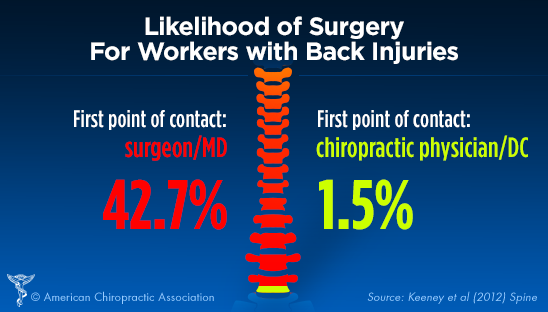The Role Of Nutrition In Pain In The Back Management: Foods To Eat And Prevent
The Role Of Nutrition In Pain In The Back Management: Foods To Eat And Prevent
Blog Article
Material Develop By-Bond Wheeler
When it comes to managing your back pain, the food selections you make can significantly impact how you feel every day. Envision being able to alleviate your discomfort just by adjusting what you consume. By understanding the duty of nutrition in back pain management and understanding which foods to integrate or stay away from, you can take positive actions in the direction of a healthier and a lot more comfy lifestyle. The link in between nutrition and back health and wellness is extra profound than you might understand-- allow's discover how certain foods can either calm or aggravate your neck and back pain.
Value of Nutrition in Pain In The Back
Nutrition plays an important role in taking care of pain in the back. Your diet can significantly impact swelling degrees and total pain levels in your back. Eating a balanced diet plan rich in nutrients like vitamins D and K, calcium, magnesium, and omega-3 fatty acids can help in reducing swelling and enhance bones, which are vital for back health.
Furthermore, preserving a healthy and balanced weight through appropriate nourishment can reduce stress on your spinal column, decreasing the threat of pain in the back.
Additionally, particular nutrients like anti-oxidants found in fruits and vegetables can help deal with oxidative tension and advertise recovery in the body, consisting of the back muscular tissues and spine.
On the other hand, eating too much quantities of refined foods, sugary drinks, and undesirable fats can add to swelling and weight gain, intensifying pain in the back.
Foods to Consume for Back Health And Wellness
To support a healthy and balanced back, incorporating nutrient-rich foods right into your daily dishes is essential. Including foods high in antioxidants like berries, spinach, and kale can help reduce inflammation in your back, alleviating pain and discomfort. https://www.military.com/daily-news/2019/09/16/chiropractic-care-works-troops-lower-back-pain-not-everyone-can-access-it.html -3 fats located in fatty fish such as salmon and mackerel have anti-inflammatory residential or commercial properties that can benefit your back health and wellness.
Additionally, taking in nuts and seeds like almonds, walnuts, and chia seeds gives essential nutrients like magnesium and vitamin E, which support muscular tissue function and minimize oxidative stress and anxiety. Incorporating lean healthy proteins such as chicken, turkey, and tofu can aid in muscular tissue repair service and maintenance, promoting a strong back.
Do not forget to include milk or strengthened plant-based choices for calcium to sustain bone health. Last but not least, hydrate with lots of water to maintain your spinal discs hydrated and working optimally. By including these nutrient-dense foods in your diet plan, you can nourish your back and support total spinal wellness.
Foods to Avoid for Pain In The Back
Opt for staying clear of processed foods high in sugarcoated and trans fats when looking for remedy for neck and back pain. These types of foods can contribute to inflammation in the body, which might exacerbate back pain. Say no to sugary snacks like candy, pastries, and sweet beverages, in addition to fast food items like hamburgers, fries, and fried hen that are commonly filled with trans fats.
In addition, avoid foods including high levels of refined carbohydrates, such as white bread, pasta, and pastries, as they can increase blood glucose degrees and potentially intensify swelling in the body.
It's additionally wise to limit your intake of foods high in hydrogenated fats, like red meat and full-fat dairy items, as they can add to inflammation. Refined foods like delicatessens meats, chips, and packaged treats are frequently high in saturated fats and must be eaten in small amounts.
Conclusion
To conclude, paying attention to your diet plan and making smart food options can have a significant effect on taking care of pain in the back. By including simply click the following page -rich foods like berries, fatty fish, nuts, and lean healthy proteins, and avoiding refined and sugary products, you can help reduce swelling and support generally back wellness. Keep in mind, what you eat plays a vital duty in just how you feel, so see to it to prioritize your nourishment for a healthier back.
